and now ... a blog
August 12, 2020
Trump Tales
NPR's Terry Gross has interviewed a number of authors who have written books about President Trump and his
administration on her show, Fresh Air. These are books by very credible journalists; Bob Woodward of Nixon/Watergate fame, Michael Lewis (author of Moneyball and The Big Short),
numerous Pulitzer Prize winners, Harvard professors, and staff writers at major media publications. Together, they tell the story
of a willfully ignorant, dishonest, and increasingly chaotic President Trump who is consolidating his power and accelerating the erosion of democratic norms,
touting conspiracy theories, and filling the top ranks of government agencies with loyalists, in effect creating an actual Deep State
where one does not currently exist. Below are summaries and notes I made from listening to these interviews.
Disclaimer: In many cases I made liberal use of Ctrl+C, Ctrl+V from the
original transcripts.
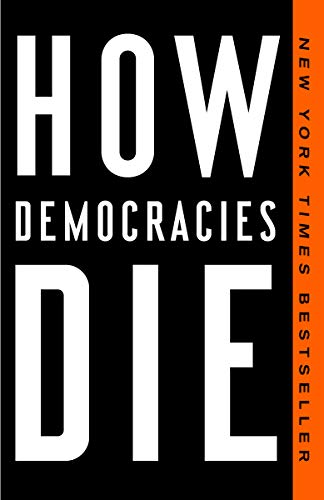
How Democracies Die by Steven Levitsky and Daniel Ziblatt, both Professors of Government at Harvard.
NPR Fresh Air - January 2018 (30 minutes)The authors argue that Trump has shown authoritarian tendencies and that many players in American politics are discarding long-held norms that have kept our political rivalries in balance and prevented the kind of bitter conflict that can lead to a repressive state.
Demagogues and Authoritarians outside of the U.S.
Most post-Cold War democracies don't die in a "hail of gunfire" from a sudden military coup. Instead, a leader (usually a freely elected one), gradually weakens the democratic institutions (courts, legislature, free press, etc.) until the incumbent is firmly entrenched in power. This process takes years, sometimes a decade or longer, so it can be difficult to detect. Turkey is a good example; Recep Tayyip Erdoğan was elected in 2014 and by gradually suppressing the free press, declaring a prolonged state of emergency, and bending the judicial and legislative bodies to his will, he has greatly consolidated his power and Turkey no longer has free and fair elections.Many extreme demagogues gain legitimacy by attaching themselves to mainstream politicians. Hugo Chavez in Venezuela, Mussolini in Italy, and Hitler in Germany were all very successful at this. The mainstream politicians make a sort of Faustian bargain by trying to leverage the appeal of these extreme and often charismatic firebrands, thinking they will ultimately be able to control them—they rarely can.
America's demagogue filter is gone
In the United States, the main political parties blocked would-be demagogues and extremists from the presidential nomination. Henry Ford (a Nazi sympathizer), Huey Long, and George Wallace all had presidential ambitions and lots of support, but were blocked by their parties. Primaries weren't used until 1972—before that, nominees were chosen in "smoke-filled back rooms", a process that had its own obvious downsides, but did filter out the most toxic candidates. In addition, at least up through the 1990s, candidates needed infrastructure on the ground like support from local activists, unions, local media, and party insiders to have a real shot at winning a primary. The rise of social media changed that, allowing outsiders to make a name for themselves without building any of those alliances. Donald Trump showed that you can be an outsider and win.
Democratic norms
Democratic norms are just as important as an explicit Constitution, and two of the most important are mutual toleration and forbearance. Mutual toleration is the underlying acceptance among all major parties that rivals are legitimate and that their supporters are equally patriotic. Forbearance is restraint in the exercise of power. The President is allotted tremendous power by the Constitution. At any time (with a majority in Congress) he can pack the Supreme Court or rule by decree via Executive Orders or Presidential Memos/proclamations. Presidents need to underutilize their power, and that's not written down in the Constitution.
Durability of democracy in America
Americans have a long-standing commitment to the principles of freedom and equality, and American democracy is the oldest in the world. At the same time, there has been a sub-current in America for the past century where a relatively constant ~30% of the electorate has supported politicians and candidates (Henry Ford, Huey Long, Joe McCarthy, George Wallace, Donald Trump) who have a questionable commitment to democratic norms. Additionally, these democratic norms supported so vigorously by a majority of Americans were born in a homogenous (racially and culturally) society in an era of racial exclusion. African Americans practically didn't have the right to vote in the South after Reconstruction had ended, and in many ways America wasn't a real democracy until the Civil Rights Act of 1964 and the Voting Rights Act of 1965.
Erosion of democracy in America
The erosion of democracy in America began well before Trump. In the 1990's, Newt Gingrich (and his "Gingrich Republicans") began using language that called into question the norm of mutual toleration—words like "betrayal, sick, pathetic, anti-family, and anti-American" to describe their rivals. Democrats also played a part in the escalation, especially Harry Reid during the early 2000s as he employed the filibuster far more frequently than it had previously been used, setting the stage for even more obscene obstructionism by Mitch McConnell years later. And Obama used lots of executive orders and presidential memos himself, to counter the Republican's obstruction.
The most extreme party
Though both Democrats and Republicans share blame for the erosion of norms, the Republicans have been the more extreme party. They are responsible for four of the most egregious acts of hardball politics in recent memory: Bill Clinton's impeachment (1999), mid-decade redistricting in Texas led by Tom DeLay (2003), denial of a hearing for Merrick Garland to join the Supreme Court (2016), and the legislative coup to strip the incoming Democratic governor of power in North Carolina (2016). Asked about whether the authors view the Republican party as the one most guilty of violating democratic norms, Levisky says,
Yes, we believe the Republicans have become a more extremist party. For us, the most persuasive explanation has to do with the way our parties have been polarized along racial and cultural lines. And the way that our parties have lined up, with the Democrats being a party, essentially, of secular, educated whites and a diversity of ethnic minorities and the Republicans being a fairly homogeneous white, Protestant party, or white Christian party, the Republicans have basically come to represent a former ethnic majority in decline. You have many - certainly not all - but many Republican voters who feel like the country that they grew up with, or grew up in, is being taken away from them. And that can lead to pretty extremist views and voting patterns.
Trump's assault on democratic norms
The authors cite two especially troubling norms that Trump is tearing down; the neutrality of law enforcement/intelligence, and the legitimacy of the media and the election process. With the FBI and attorney general's office, he has tried to turn law enforcement into a shield to protect him and a weapon to attack his opponents. Attempting to transform neutral institutions into ones that favor the current leader is a hallmark tactic of authoritarians.Trump set up the Federal Election Commission to, officially, try to collect evidence of election fraud and voter ID fraud (and support his baseless claims of rampant voter fraud during the 2016 election). In reality, there is zero evidence of any measurable amount of election fraud, and his real aim is to disenfranchise voters who would likely be voting against him and against the Republicans. Trump didn't invent the myth of prevalent voter fraud in U.S. elections, but he's tried hard (and largely succeeded) to give it a new air of credibility.
By repeating these lies over and over again, Trump has convinced a sizeable segment of our society (and a very large number of Republicans) that our elections really are fraudulent and that the mainstream media is conspiring to bring down his administration, to the point where many voters now only trust Fox News or its (often even more dubious) equivalents.

Fear: Trump in the White House by Bob Woodward, who has written books on nine presidents and, with Carl Bernstein, broke the Watergate story.
NPR Fresh Air - September 2018 (41 minutes)The book covers January 2017 thru March 2018, drawing from hundreds of hours of interviews with firsthand participants and witnesses to these events. Nearly all were tape-recorded, but spoke on 'deep background', meaning Woodward wouldn't reveal who provided the information.
Trump is unable to absorb important information and lacks knowledge, interest, and an understanding of the consequences of his actions. Some people joined his team purposely to subvert him in an effort to protect America's interests. His tweets brought us closer to war with North Korea than most people know.
An especially salient quote from Woodward during the interview (which is also discussed in A Very Stable Genius
There is a long section in the book about a meeting in the Tank at the Pentagon, which is the joint chiefs of staff meeting room. And Gary Cohn and Secretary Mattis had a lunch and said, we've got to get Trump over here. We need to educate him on the way there is the interrelationship between the trade agreements, between the security agreements like NATO or the agreement with South Korea and the top secret intelligence partnership.
And that's the triad, what Mattis called the great gift of the greatest generation to us - the rules-based international democratic order. This is the old order that Trump inherited. He (laughter) - he has all of these people, including his top officials in the national security field and in the economic and finance world who think that triad is the key to stable order. At the time, Secretary of State Tillerson said this is what's kept the peace for 70 years.
And Trump at the meeting totally rejects it and just says, you know, I don't care about all of these things; this is the old way, particularly in South Korea. He says, I don't give a - and very much objects to the 3.5 billion that's spent to keep the U.S. troops there in South Korea. And he says, I don't know why they're there. Let's bring them all home. Well, they're trying to tell him, they're there - in fact, the most efficient, meaningful national security dollars that are spent. That's when Secretary of State Tillerson at the end said after had Trump left that he's an effing moron.
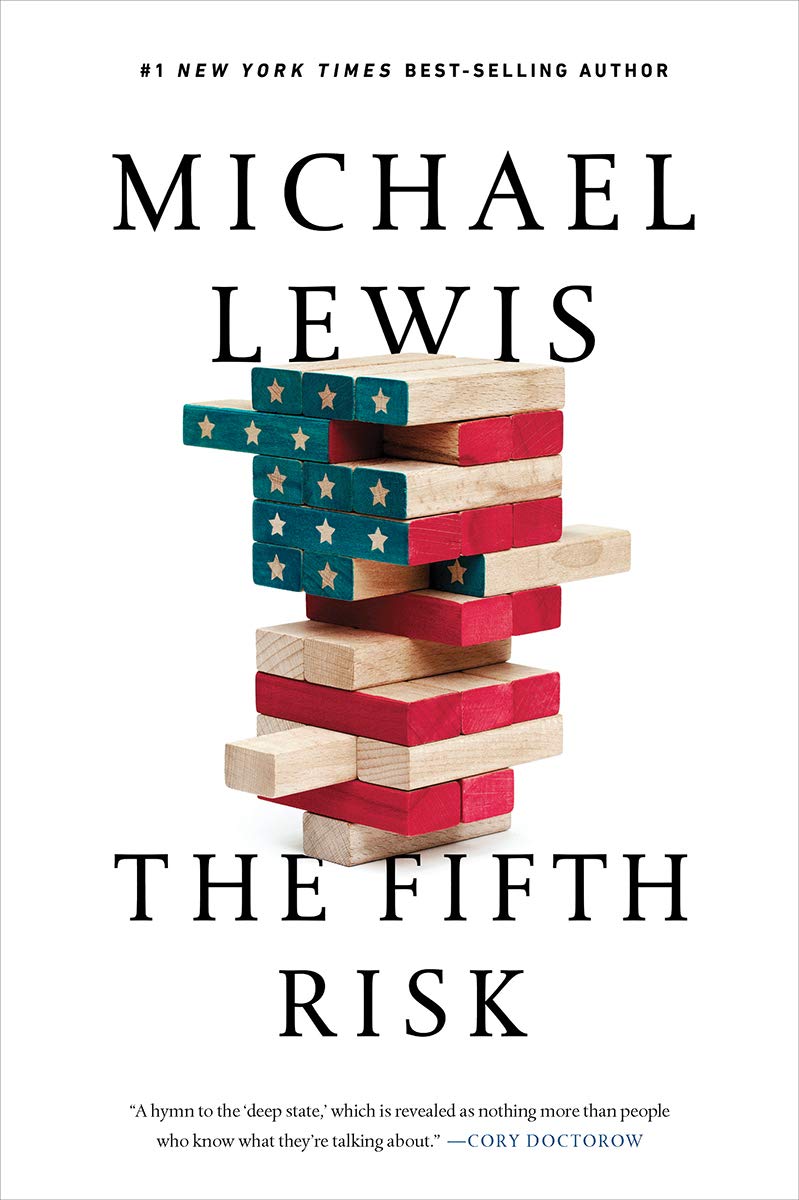
The Fifth Risk by Michael Lewis, author of Moneyball and The Big Short.
NPR Fresh Air - October 2018 (43 minutes)
The book focuses on the departments of energy, commerce, and agriculture, which are used by the government to manage a portfolio of risks that no private person or corporation was ever able to manage, from forecasting and warning about hurricanes (National Weather Service, part of the Commerce Department) to preventing accidental explosions of our own nuclear weapons, one of the Department of Energy's responsibilities.
In the Trump administration, many key positions in these agencies remain either unfilled or filled by people who are uninformed or hold political views or have conflicts of interest that make them agnostic or even hostile towards the department or agency they are leading.
The fifth risk is the risk that you fail to imagine, and the thing that's actually going to come and kill you while you're busy worrying about known/understood risks. Most people in these departments (and the White House) could come up with their top three or four risks, but couldn't imagine a fifth, hence the title of the book.
The federal government as a portfolio of risks
The Obama administration spent an immense amount of time and effort developing the best course that had ever been created in how to run the federal government or what was going on inside the federal government, and this course was meant to be given to whoever won the election, starting the day after the election. They were expecting hundreds of people to enroll and receive these briefings, but nobody showed up. Lewis was often the first person to receive these briefings. When you neglect, ignore, and operate these agencies on the basis of ignorance, across such a big and broad portfolio of risks, you amplify the risks and increase the probability that one of them actually causes problems.A lot of risks the government manages are long term—climate change, income inequality, toxic waste containment/cleanup. The myopia of the Trump administration and its living news cycle to news cycle is largely incompatible with managing these long term risks, and much of the public has gone along with it.
Data removal and going dark
The Trump administration has a hostile attitude towards the data the government is supposed to make available to the public. In all three agencies, anything having to do with climate was removed. The Department of Agriculture removed data about cases the government brought against people who had abused animals—circuses, ranchers, etc. In almost every case, there's some Trump supporter or appointee who has some narrow financial interest in the removal of the data.Two and a half years into the administration, half of the top 700 jobs are still unfilled, and ones that are filled are often very oddly by people who don't have the expertise for the job.
In the Agriculture Department, the chief scientist is in charge of distributing $3 billion a year for basic research, almost entirely dedicated to finding ways to adapt the food supply chain to climate change. The job went to a right-wing radio talk show host who backed Trump in Iowa (he rescinded his nomination after the Mueller report).
The Department of Commerce should be called the Department of Information and Data
The Department of Commerce is in charge of the Census, the collection of economic statistics, and half of its budget is spent gathering weather and climate data via the National Weather Service, which is inside the Department of Commerce.There's a great opportunity to make better use of the data the federal government collects (e.g. Big Data). But the Secretary of Commerce, Wilbur Ross, is not interested in that. He's been embroiled in a lawsuit pertaining to 'the citizenship question' on the 2020 census. Wilbur Ross is an 80 year old who was falling asleep in meetings and appeared (to Republicans trying to teach him about the department) utterly uninterested in anything but trade. What the department needs is someone who's really comfortable with technology.
NOAA and the National Weather Service
65% of the Department of Commerce's budget goes to NOAA, the National Oceanic and Atmospheric Administration, which includes the National Weather Service. Trump nominated Barry Myers, the CEO of AccuWeather, to lead NOAA (he later withdrew for medical reasons). NOAA is a giant science operation, and the person who leads it typically has a science background (Myers is a lawyer). Far more concerning, Myers has spent two decades trying to prevent the National Weather Service from communicating with the public so that AccuWeather can do it instead.The data that is required for weather prediction (and used by AccuWeather and others) comes from a bunch of billion dollar satellites and networks of radar stations across the country that are paid for by taxpayers. The NWS spends the bulk of its money accumulating the data that it then makes available for free to companies like AccuWeather so they can go and advertise the weather. The taxpayer shouldn't have to pay for this twice.
Trump didn't run to win—a failed transition
Trump didn't run to win, he didn't have an acceptance speech on the night of the election, he didn't have anyone qualified to receive briefings from Obama administration during his campaign (as required by law)—he ran as an exercise in brand building. He got furious when people told him he had to spend his or his campaign's money to build a transition team. He told Chris Christie that "if we win, you and I can just leave the victory party two hours early and figure out everything we need to figure out about the government". He believes because he's rich he's also smart.Christie ends up putting together a pretty good transition team—a few hundred really qualified people who were ready to go receive the government from the Obama administration, which had built a great course in how the government works. Not an ideological briefing, but one that explains how they dealt with problems—you might disagree, but here were were problems we faced and how we dealt with them.
The day after he wins the election, Trump fires all of these people, possibly because Jared Kushner told him to, as he didn't like the idea of Chris Christie running the operation because Christie had, as a prosecutor in New Jersey, put Kushner's father in jail. In addition, many people in Trump's ear (e.g. Michael Flynn), who were supposed to get important government jobs, were left off Christie's list because the transition team had vetted them and found problems with them, and Michael Flynn and others convinced Trump to get rid of the operation that would prevent them from getting these jobs. In addition, Trump's total disdain for and indifference to the government played a big role in the lack of a transition team. If he had any awareness for the complexity of the operation he was about to run, he'd have been terrified to get rid of the people who were going to help him do it. Chris Christie was ultimately fired as well (Nov 11 2017), probably because Trump and Kushner never wanted him involved, and they figured the whole transition thing would never happen because Trump would never get elected.
Thomas Pyle and hostile takeover of the Department of Energy
Thomas Pyle, president of the American Energy Alliance (a group funded by ExxonMobil and Koch Industries that represents fossil fuel companies) is sent to the Department of Energy (DoE) after Trump's inauguration. He's theoretically supposed to be receiving hundreds of hours of briefings from people in the Department who had prepared them, but instead he had a single hour-long meeting with a couple of people, didn't take notes, and left the impression that he had no interest in what they had to say.Pyle sent a list of questions to the Department, asking for the names of anyone who had attended meetings associated with climate change, trying to identify people who might be hostile to the fossil fuel industry. The Department didn't comply, but he was obviously hostile and signaled that the new administration did not approve of the various attempts of the DoE to wean the U.S. from fossil fuels (which is part of the DoE's mission).
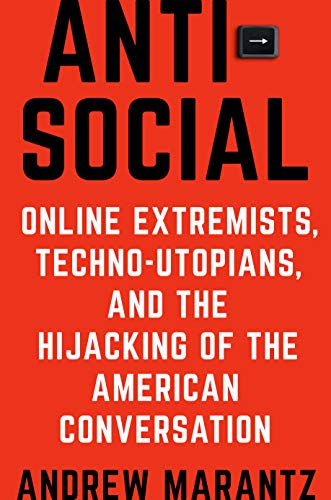
Antisocial: Online Extremists, Techno-Utopians, And The Hijacking Of The American Conversation by Andrew Marantz, a staff writer for The New Yorker.
NPR Fresh Air - November 2019 (36 minutes)Marantz spent three years reporting on the alt-right's use of social media. He embedded with the trolls, bigots, and propagandists who are experts at converting fanatical memes into policy.
Mike Cernovich
Mike Cernovich - lawyer, misogynist, white supremacist, conspiracy theorist, social media personality, and generally awful person who got a lot of made up stories/memes (like 'Hillary-is-sick' and 'Hillary-has-a-neurological-problem') going on Twitter and Facebook, at which point they would migrate to the Drudge Report and then to Fox News and then CNN, often within 24 hours. He allowed Marantz to actually watch him work from his living room—the author saw Cernovich succeed again and again getting these completely made-up memes to make their way to the mainstream media.
Mike Enoch
Mike Enoch (pseudonym of Michael Isaac Peinovich), an American neo-Nazi, anti-Semitic conspiracy theorist (Holocaust denial, white genocide). Founder of the (far-right) blog The Right Stuff and of the podcast "The Daily Shoah" (Shoah is Hebrew for Holocaust). Another miserable person who promoted lots of far-right propaganda and supported Trump in 2016. Most ironically, his wife is Jewish.
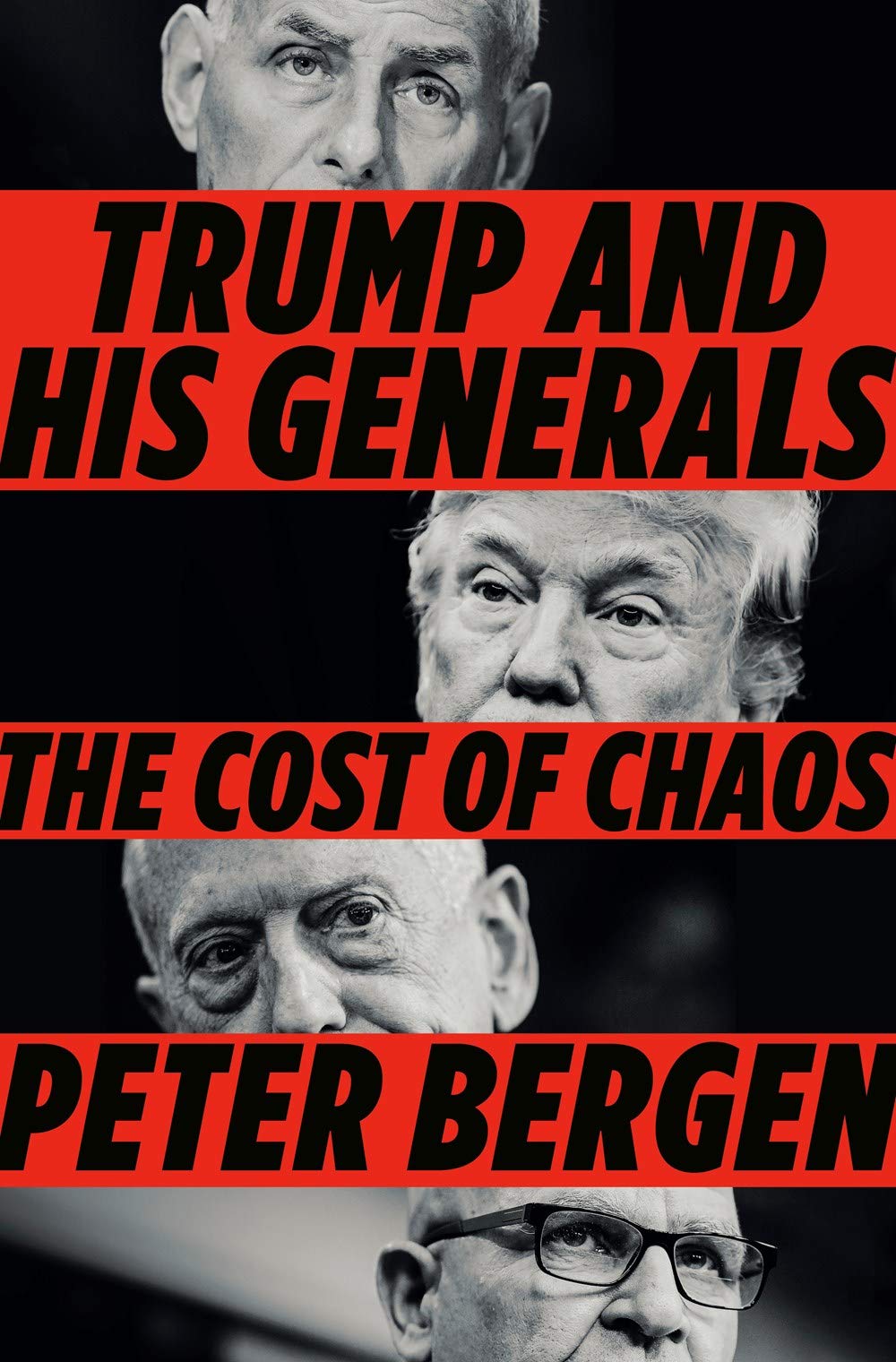
Trump And His Generals: The Cost Of Chaos by Peter Bergen, a national security analyst for CNN, vice president of the non-partisan think tank New America, and producer of the first TV interview with Osama bin Laden in 1997.
NPR Fresh Air - December 2019 (37 minutes)Earlier in the Trump administration, there were three generals in national security positions: Jim Mattis as Secretary of Defense, John Kelly (Homeland Security Director and then White House Chief of Staff), and H.R. McMaster who became the National Security Advisor after Michael Flynn was forced out after lying about a phone call with the Russian ambassador. Eventually, Trump was at war with these generals and they all left the administration.
How these generals tried to prevent Trump from acting impulsively, how their relationships with the president deteriorated, why they left, and how their absence has affected national security are the subjects of this book.
Trump has done some good things and not made many unforced errors regarding national security (ISIS campaign, China (mostly), pulling back Iran strike, committing to Afghanistan), but these decisions were made with these generals in his cabinet. Now they're gone, and Trump (with no military service or experience holding public office—a first in our history) is surrounded by yes men.
- Mark Esper as Secretary of Defense: perfectly competent guy, but he's no Jim Mattis
- Robert O'Brian as National Security Advisor: a lawyer with some government experience is no H.R. McMaster
- Chad Wolf as head of Department of Homeland Security: a very minor official, relatively speaking, compared to John Kelly who ran Southern Command as a four-star Marine general
- Gina Haspel as CIA Director: a CIA lifer who's keeping her head down
Mike Pence doesn't care about national security issues other than Christians being persecuted in the Middle East.
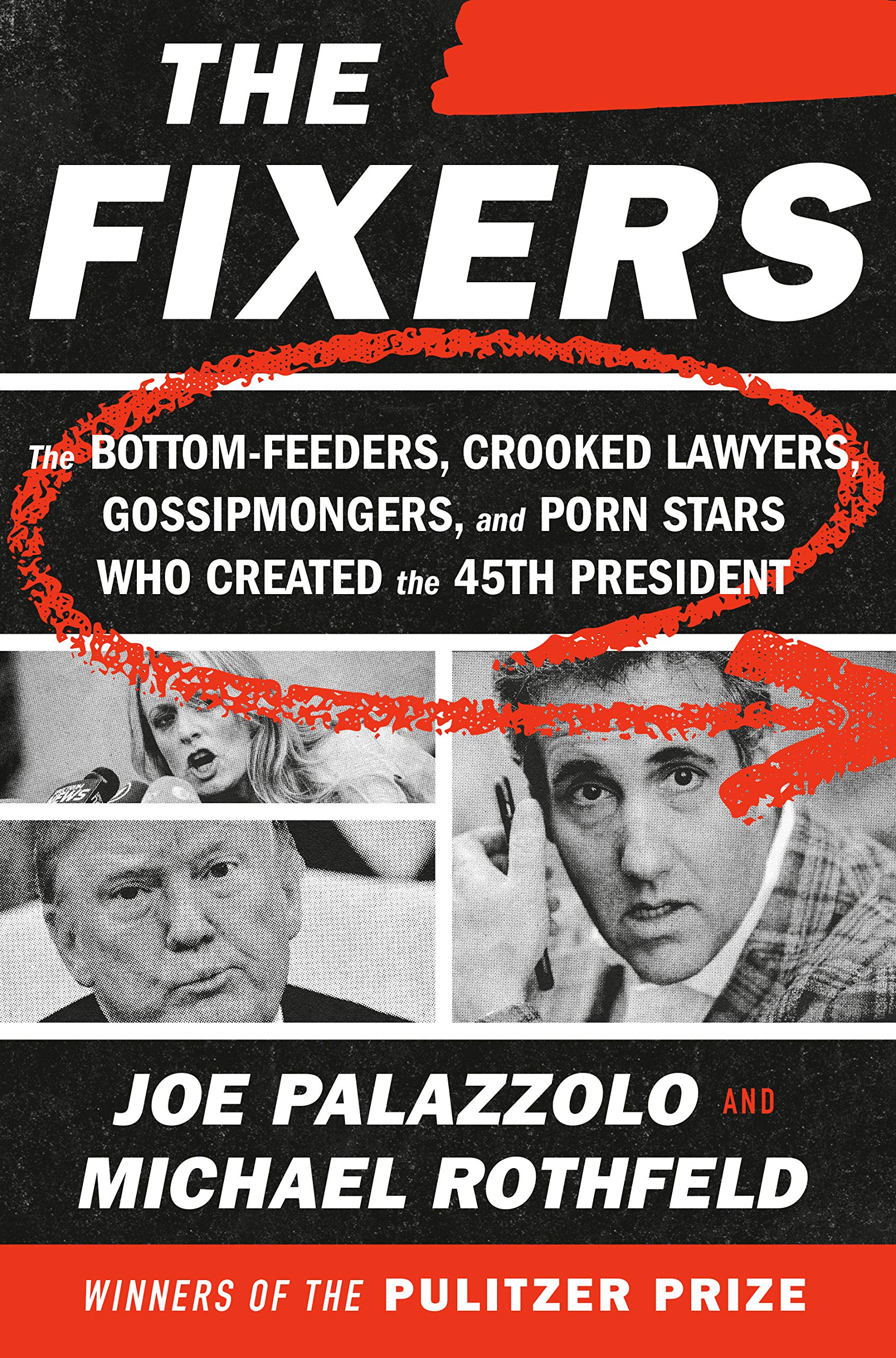
The Fixers: The Bottom-Feeders, Crooked Lawyers, Gossipmongers And Porn Stars Who Created The 45th President by Joe Palazzolo and Michael Rothfeld, Wall Street Journal reporters whose Hush Money series won a Pulitzer Prize in 2019.
NPR Fresh Air - January 2020 (36 minutes)
David Pecker and the National Enquirer
David Pecker ran the National Enquirer from the 1990's thru 2019 (and Hachette before that). He hung around with Trump 20+ years ago, published Trump Style magazine for him, and used his tabloids to protect Trump over the years by suppressing negative stories about him.In August 2015, Trump asked Pecker what he could do for his (Trump's) campaign. Pecker responded that he could write negative stories about his opponents and positive ones about Trump, but more importantly he could intercept any negative stories about Trump involving women or other dirt that may come to the Enquirer, buy them up and suppress them (catch and kill).
Dino Sajudin (former Doorman at Trump Tower) was paid $30k by the National Enquirer for a tip that Trump fathered a love child with a former employee. It was never published, nor was there any proof it happened. Pecker published stories saying Bill Clinton had brain damage, that Hillary Clinton was a lesbian who survived on a cocktail of narcotics, and one that insinuated Ted Cruz's father was connected to the JFK assassination. The Enquirer ran a story on Trump donating large sums to charity and remaining a "doting dad", which was completely false.
Stormy Daniels
Stormy Daniels is a former porn actress who had an affair that included one night of sex with Donald Trump in 2006. She tried to publish the story in Life & Style Magazine in 2011, but Michael Cohen (Trump's special council and fixer) threated them with legal action, and since Trump was a fading reality TV star at that time, the magazine thought it wasn't worth the trouble and killed the story.After the Access Hollywood tape came out in October 2016, she tried again to sell it to the National Enquirer. Ultimately David Pecker refused to buy it, and referred Daniels to Michael Cohen, who ended up paying Daniels $130,000 in hush money.
Karen McDougal
Karen McDougal is a Playboy model who had an affair with Trump from 2006-2007. The National Enquirer bought the story for $150k (after she threatened to go to ABC with it), and expected to be repaid by Trump. Cohen set up shell company (Resolution Consultants) for the payments, and they agreed on a payment of $125,000 (less $25k for some covers and health care columns Karen would do as a coverup), but it didn't end up happening because David Pecker's lawyer told him it would be a campaign finance violation. Pecker then told Cohen to rip up the contract, which he never did, as it was later recovered in the FBI raid.
A pattern of cover-ups
You can be the judge of how important the details of these affairs are. But the fact that he and his lawyer and his friends in the tabloid media were working to keep information from the voting public during a presidential election sheds light on how Trump operates, which shows a pattern of covering things up and using people to do it for him, and it goes back many years.
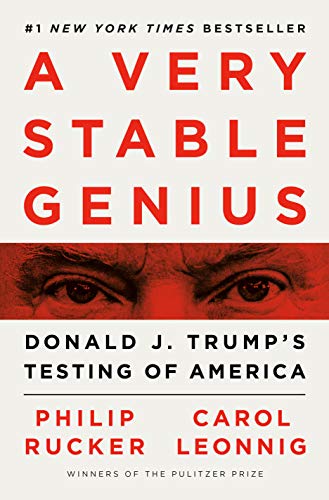
A Very Stable Genius: Donald J. Trump's Testing Of America by Carol Leonnig and Philip Rucker, Pulitzer Prize winning reporters from The Washington Post.
NPR Fresh Air - January 2020 (37 minutes)An unsettling account of the first two and a half years of the Trump administration.
Briefing in The Tank (Pentagon), July 2017
Secretary of Defense Jim Mattis, Economic Advisor Gary Cohn, and Secretary of State Rex Tillerson were alarmed at Trump's lack of knowledge and arranged a briefing to educate him in The Tank—a sacred meeting room in the Pentagon. They put some slides together with lots of graphics, videos, dollar signs, charts, and even Trump's name littered throughout the slides in an attempt to keep his attention. The presentation explained:- where our troops are deployed
- why we have the alliances we do
- what NATO does
- why we have so many troops in South Korea
Trump got annoyed and called his generals and advisors a bunch of "dopes and babies", saying, "I wouldn't go to war with you people". He insists that countries should be paying us to have our troops there, and is obsessed about the cost of everything. Only Tillerson stood up to him, saying "that's not why people put on a uniform, Mr. President. They're protecting our freedom. It's not about making money"
Bromance with Putin
Trump wanted to meet with Putin before he was even in office. He admires the Russian president as a macho strongman leader. After meeting with Putin for two hours, he told Secretary of State Rex Tillerson (who has years of experience negotiating with Putin from his ExxonMobil days) that he (Trump) now understands Putin better than Tillerson does and no longer needs any advice. Meanwhile, Putin has developed a knack for manipulating Trump by feeding his unusual combination of huge ego and insecurity, and has seemingly perfected how to cultivate conspiracy theories in Trump's mind.
Undermining his cabinet by declaring a a military operation at the southern border on live TV
In February 2017, Secretary of State Rex Tillerson and Chief of Staff John Kelly are in Mexico to meet with the president and patch up the relationship, which was on the rocks since Trump said Mexico would pay for a border wall and all of his anti-immigration rhetoric. On their way to one of the most important meetings, Trump had a live TV crew in a cabinet meeting where he said the situation on the southern border was out of control and that it's now a military operation. Tillerson and Kelly were caught completely off guard and had to scramble to re-work their talking points and meeting agendas.
Opinions from his administration
(on the last page of the book) - "By the fall of 2019, Trump was acting as if he were convinced of his own invincibility, believing he could wield the vast powers of his office in pursuit of his personal and political goals without accountability. He genuinely believed that his interests came first and that, as president, he was above the law.""the guy is completely crazy; the story of Trump, a president with the horrible instincts and a senior-level cabinet playing whack-a-mole."
"I've served with the man for two years; I think he's a long-term and immediate danger to the country"
These are anonymous sources, but the reporters were told these same basic things over and over again.
Den of Dysfunction
Trump calls them leakers, but people in the West Wing, Pentagon, national security apparatus, State Department, and Justice Department have been more willing to talk to reporters than in the past because they are so alarmed by what they see happening by the president and others in his administration.
Lies vs misstatements
To call a president's statement a lie is a big hurdle - you have to know that he knows what he's saying is untrue and his intent is to misinform and mislead. Reporters are more comfortable calling many of the things he says misstatements or falsehoods, since they don't necessarily know that he knows they're false. His Birtherism crusade about Obama being born in Kenya - that was definitely a lie.Despite his attacks on the media and reporters, he very much craves their approval, bragging about how many front page stories he's on, etc.
On being published at the beginning of an impeachment trial
Donald Trump is interested in perpetuating his own power. It's a presidency of one, and it's escalating in the direction of a lack of discipline and chaos - a den of dysfunction, as Phil Rucker put it once in a story. It happened because the guardrails are off - he relied on Rudy Giuliani saying 'hey, we can get some dirt on your No. 1 political opponent'.
On Trump's acquittal
Trump feels exonerated, empowered, and emboldened to do as he pleases without consequence. Despite all the evidence of misconduct with Ukraine, Republican senators stood by him, protected him, and chose to relegate their powers of oversight to the executive branch.
Roger Stone
After the Justice Department recommended sentencing of up to nine years for Roger Stone, Trump tweeted that this was unfair, and then the next day the Justice Department overruled the prosecutors.
What's the breaking point?
People currently in government and those who have previously served are horrified by what they've seen and what it may mean for American democracy in the future. Every time Trump avoids accountability and escapes consequences for his actions, he becomes more emboldened and lashes out further and pushes the boundaries even more. At what point would Republicans actually punish him? What's the breaking point?
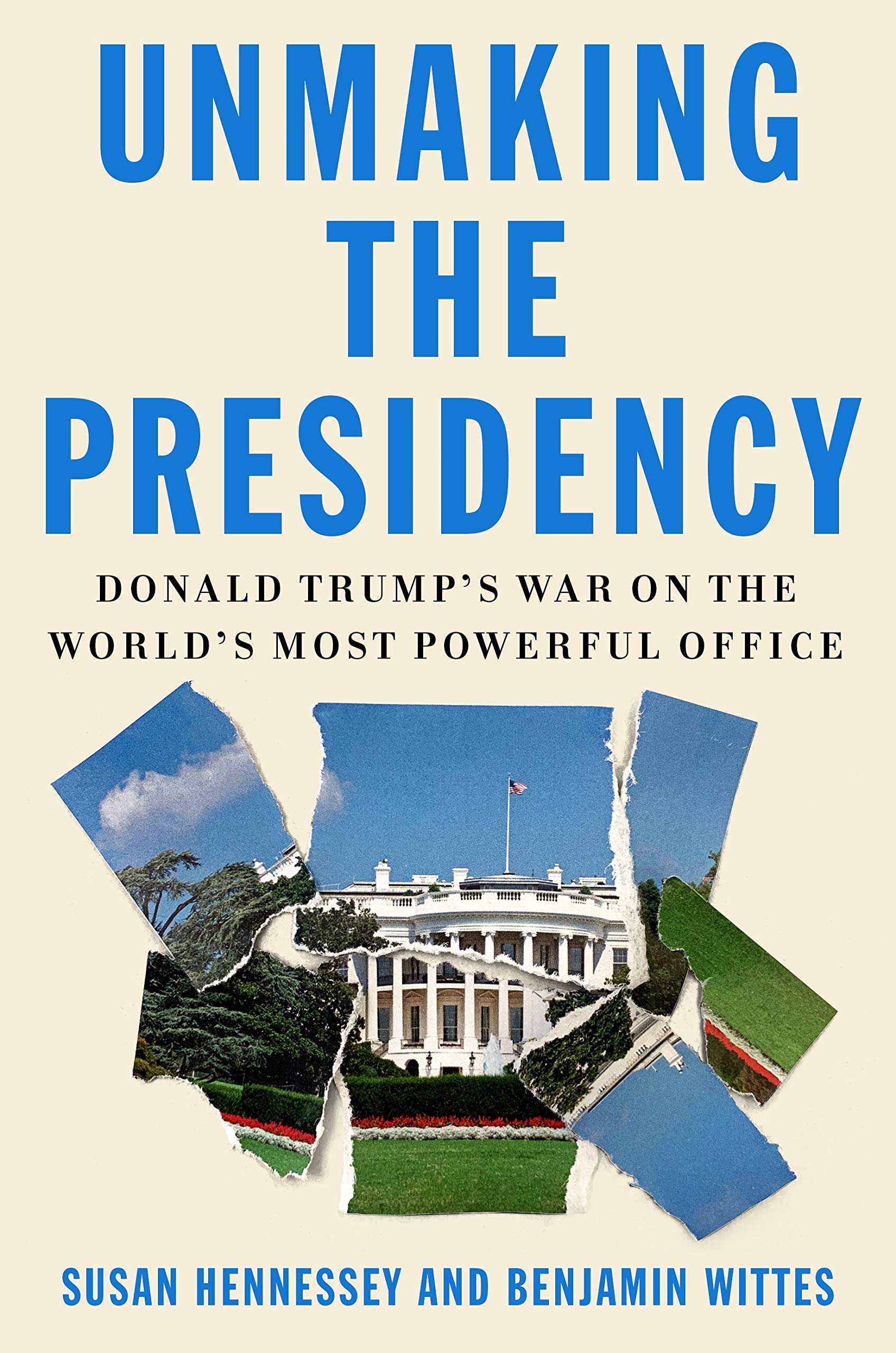
Unmaking The Presidency: Donald Trump's War On The World's Most Powerful Office by Benjamin Wittes and Susan Hennessey. Wittes is the editor-in-chief of Lawfare blog, a contributing writer at The Atlantic, and a former editorial writer at The Washington Post.
NPR Fresh Air - March 2020 (28 minutes)
Trump is a "vanity plate" president
The presidency is a management office. It's the apex of a large series of interlocking bureaucracies, and there are processes and systems in place to ensure only the best information makes its way to the president. Unlike all previous presidents, Trump doesn't want the best information, and he doesn't care what the interagency process advises him to do. He wants to do whatever his gut tells him to do.Trump is far less interested in the managerial and oversight aspects of the office than he is in the 'vanity plate' elements of the presidency— using it as a platform for tweets, daily press conferences where he talks a lot about himself, holding rallies, announcing new things with dramatic gestures, etc. Other presidents have exploited the expressive dimensions of the office (Theodore Roosevelt termed it the bully pulpit), but Trump has made them the central feature of the presidency.
The three things that typically inhibit a president from lying (a lot)
All presidents lie, but Trump lies a lot—multiple times a day in a fashion that is unprecedented in the history of the country, and one of the features of his presidency that is most striking. There's nothing in the law or Constitution that prevents him from doing so in most cases. Traditionally, presidents are inhibited from lying (a lot) by three things:
- Oath of office—presidents swear an oath to faithfully execute the office of the president and to do his best to ensure the laws are faithfully executed
- Fear of political negative consequences—if you lie a lot, you have no credibility, and you need credibility to interact with Congress and negotiate with foreign leaders
- Political retaliation from voters
Trump's attacks on the media, intelligence community, and other entities that deal in useful information
Public information is one of the most important things to help fight a pandemic, so attacking that information is remarkably damaging and counterproductive. It's also part of Trump's longstanding war against these entities: the media, federal law enforcement, intelligence community, and the traditional foreign policy apparatus. They all have one thing in common—they traffic in information that needs to be true in order to be useful, and is not propagandistic on behalf of the president. That is inconvenient, damaging, and threatening to Trump, so he attacks them.
Destruction through abuse, not illegality
Trump's abuses of power are mostly not illegalities (e.g. Nixon and Watergate, or the illegal detention of Japanese Americans during WWII) where an authority is exceeding their lawful powers, but rather in the non-faithful use of the powers you absolutely and undeniably have:- fire FBI director (for investigating Russian interference in election)
- fire attorney general (for recusing himself and not "protecting him")
- pardon people (for completely self-interested reasons)
What about the 2020 election and coronavirus?
As for the 2020 election and the impact of the coronavirus pandemic, it really can't be postponed because 1) federal law specifies the date on which it has to take place and 2) the Constitution requires that the next president, whether the incumbent or somebody else, takes the oath of office on January 20, 2021, and that person cannot do so without the Electorial College having formally elected him or her. The real threat is that the election will be carried out in a fashion that is deficient in terms of people's access to voting (in a safe way).
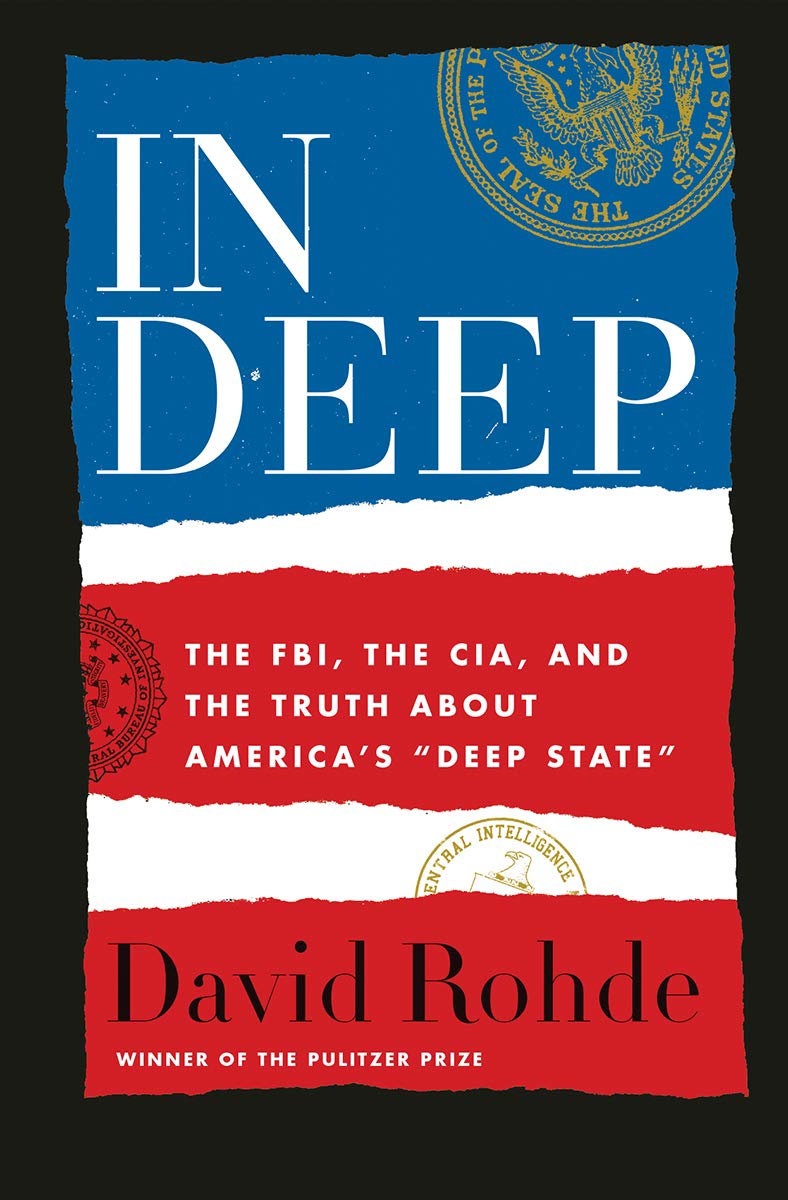
In Deep: The FBI, The CIA, And The Truth About America's 'Deep State' by David Rohde, executive editor for news at The New Yorker online and former foreign correspondent for The New York Times, who was held captive by the Taliban for seven months. In 2009, he shared a Pulitzer Prize with a team of reporters for coverage of Afghanistan and Pakistan.
NPR Fresh Air - April 2020 (35 minutes)
Origination of the term Deep State
There was a poll in early 2018 that found more than 70% of Americans felt there was a secret group of unelected officials and generals who influence American policy in Washington—the establishment (mainstream journalists, scientists, doctors and policy experts) are not trusted by large number of Americans.The term was originally used to describe the military in Turkey and its attempt to limit Democracy there. It was used in 2007 by UC Berkeley professor Peter Dale Scott to refer to the military industrial complex in the United States. That's the liberal's fear of a deep state—a cabal of defense contractors and generals that relentlessly push the country into wars.
The first time it was introduced to a large American audience was in an essay in Breitbart (Steve Bannon's news website) declaring a war is underway between the deep state—the administrative state, an ever-growing government that, to conservatives, wants to take away our rights and liberties, and the new president Donald Trump. This deep state includes anyone who supports it or participates in it—including local government (your town's police officer, firefighters, etc.). In this view there will be a relentless liberal effort to expand government across the U.S. It's a very vague term that is used (very effectively) to discredit people.
Why has the idea of a deep state and people in government conspiring against Trump caught on to such a high degree?
There's a long history of the government, especially the FBI and CIA, abusing Americans. In the 1970's the Church Committee uncovered decades of abuses by the FBI, CIA, NSA, and IRS. The CIA was opening Americans' mail, the FBI had a list of 28,000 people to round up as subversives, members of Congress were spied on, and the Supreme Court was spied on. This information went to presidents of both parties. LBJ had the FBI spy on fellow Democrats at the Democratic National Convention. Nixon and Watergate was probably the worst abuse.NRA folks who don't want their weapons taken away and people of color (after decades of mistreatment of MLK and other African American leaders by the FBI, etc.) are the most likely groups to believe in the Deep State.
How Trump's belief in a Deep State effected his Coronavirus response
Dr. Anthony Fauci, the country's top infectious disease expert, has been dubbed part of the Deep State by right wing media, who accuse him of exaggerating the threat of the coronavirus and being part of the 'corona coup' against the president. Trump retweeted, "time to fire Fauci." Did this distrust in public officials and experts cause additional loss of life? Almost certainly.
The silencing of our country's top experts
Intelligence officials (CIA, FBI, NSA, DNI) now dread speaking publicly because they know the press or senators will ask them questions that will force them to contradict the president's beliefs about the coronavirus or ISIS or China, and when that happens, you get fired. Since these experts want to avoid getting fired (and then replaced by a Trump loyalist), there are fewer hearings now, and so our country's top experts have been silenced to a large extent.
Non-belief in apolitical intelligence agencies
Trump comes from the world of New York real estate, where everyone has an angle. He doesn't really believe in apolitical public service. He finds it hard to believe that, for example, the CIA would present him just the facts in a straightforward way. Trump felt the investigation into Russian meddling in the 2016 election threatened his legitimacy, and former CIA deputy director Mike Morell publicly endorsed Hillary Clinton. Trump's first interactions with the Intelligence Community were attacks on him, and he has never trusted them since.
Standing up for facts has become political
If you contradict Trump with a fact, that becomes political. James Clapper (former DNI) said he is concerned about a war on fact and truth. In an effort to win elections, you distort the facts, confuse people, and undermine experts, all so your political narrative wins and you rally your base. That could make us ungovernable—e.g. the coronavirus—why will anyone do what the government tells them to if you don't think they are ever telling the truth?
Consolidation of Presidential Power
Trump has fired so many people for merely standing up for facts or oversight. Most recently, he fired Michael Atkinson (the Intelligence Community's inspector general) who took a whistleblower's complaint to Congress about the quid pro quo phone call with the Ukrainian president that lead to his impeachment. He also fired the leader of the watchdog panel that is tasked with supervising the spending of trillions of dollars of taxpayer money for COVID-19 relief.He has disdain for government officials and believes they are trying to prevent him from carrying out his powers as president. This reflects a long-running conservative belief that the office of the president was weakened too much in the 1970's after the Watergate reforms (that created inspectors general, among other things). Bill Barr (current Attorney General) adhered to this philosophy for decades. The executive branch is the most important branch of government—it's the one that's mobilized for wars, natural disasters, etc. Trump doesn't have any sort of philosophy, but is very much interested in concentrating power in his own hands.
Bill Barr has been Trump's sword and shield. He's been the most effective and feared member of his cabinet. Barr plays key role in the selection of judges to federal courts and, with McConnell's help, they have gotten a very high number of appointees to the bench.
Post-Watergate, the attorney general is supposed to be a neutral arbiter of the law—Barr has been very political. He gave a speech at Notre Dame about the war on organized religion from liberals.
Trump gave Barr the far-reaching power to unilaterally declassify top-secret documents in order to review the work of U.S. intelligence agencies. It's his right as President to do this, but it's never been done before. It's part of the chilling effect that if you contradict or investigate the president or his allies, you will be investigated. This is unprecedented—there was an investigation into the CIA after 911 to determine if the use of torture was criminal conduct, but the current investigation is into the intelligent assessment that Russia interfered in the 2016 election to help Trump win. Intelligence analysts are similar to journalists—they look at the information available, make assessments, and write reports. There wasn't an investigation into the CIA analysts that got the Iraq WMD thing wrong. This is an unprecedented effort to intimidate people in the IC.
Changes Trump is making that could have a lasting effect on American Democracy
Trump is actually creating the Deep State he claims is currently undermining him by installing loyalists throughout the agencies of the executive branch. The White House has been closed off regarding subpoenas from Congress. The Justice Department is being used to protect the president's friends and punish his enemies (Flynn, CIA Russian investigation, automakers anti-trust investigation). Amazon claims it lost a defense contract because Trump doesn't like the coverage he gets in Jeff Bezos's Washington Post. He installed a loyalist with no intelligence experience (John Ratcliffe) as DNI, who replaced Dan Coats (a very neutral DNI) when he said that the IC didn't believe North Korea was going to give up their nuclear weapons, which upset Trump. The president has the right to make these appointments, but people are being punished for providing facts and departments that are supposed to be apolitical post Watergate are being turned into political weapons.In all of this, Trump is creating a Deep State of his own, whether intentional or not. Under the guise of stopping a coup that doesn't exist, he's upending checks and balances that have protected American democracy for centuries. He's politicizing the Justice Department to protect his friends and attack his enemies. He's creating a shadow government filled with loyalists. Rudy Giuliani is a sort of private citizen carrying out shadow foreign policy. Sean Hannity is a private citizen acting as a communications arm of the White House. None of them answer to government accountability disclosures law, they can all work in secret. Hence, Trump is, ironically, creating a shadow government without transparency, without democratic norms, without any kind of public process— a deep state of his own.
Trump has been tweeting orders (e.g. pulling troops out of Syria) because he feels that if he makes the orders in private, they won't get executed. He doesn't receive consultation from the experts or department heads on the consequences of these actions. That's a terrible way to carry out government policies.
updated August 12, 2020